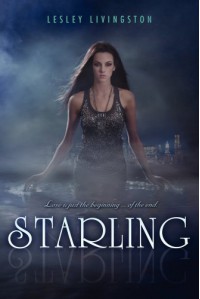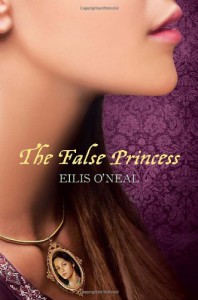
See my other reviews at Whitley ReadsIt takes quite a bit for me to DNF a book once I get past the first chapter. A merely bad book won’t do it; no, the book has to actively piss me off before I’ll put it down halfway through.Hourglass pissed me off.It was an accumulation of things, really. A line here, a subplot there, a logic hole over yonder. Each by itself would have made the boom mediocre, but as they all piled up, my patience wore thinner and thinner until seething rage just boiled over. I was so annoyed by the end of my reading and a mere misplaced comma could make me go cross-eyed with fury.Close enough.So, join me on this journey from mild interest to frothy rage.The book started out well enough. It was readable, had a decent set-up with Emerson seeing “ghosts” and the promise of a “consultant” coming in to help her with that. Ball got rolling right off the bat, and Emerson’s narration actually made me chuckle a few times.I quickly realized that the writing in this book is a kind of…intermediate fail. It got the basics right, and even did them well. On a line-editing level, this was good stuff, so it was easy to read and get sucked in. But when it came to stuff like pacing, characterization, plots, showing vs telling, all that stuff you learn after you get the basics down? Fail, fail, fail, fail. It tricked me into thinking it was well written, the sly little devil.The first thing that pissed me off was the rampant ableism and misuse of a mental illness subplot. At first this was just confusing, with lots of conflicting details so that I couldn’t quite tell what was going on. Emerson said she was committed for talking to a ghost in public, says she was on drugs that put her into a stupor, several times admitted that it was all hallucinations, and then went ahead and treated her ghosts like ghosts? It took a while to shake out, because the book couldn’t decide what it was doing with that subplot and it really felt like the whole thing was written more on the fly than a season of LOST, but the final version as I understand it was this: Emerson got depressed after she lost her parents, was committed to a mental institution because of depression + visual hallucinations, and then her medication (either antidepressants or antipsychotics, depending on what page you’re reading, it kept switching) made her stop seeing ghosts. Eventually she got out of the institution (because…she was better? Left because she felt like it? Brother pulled her out? Fuck you, this book doesn’t care) and then stopped taking her meds but didn’t tell anyone.Oh, so, so, so many things wrong here. First of all, the book has no fucks to give when it comes to displaying mental health care in…any sort of realistic light. Positive, negative, fuck it, that whole committed thing is just in her backstory for sympathy points not to be examined or anything. Second, who the fuck decided to drug her? With what drugs? If it was done for the depression, then drugging someone into a stupor for depression seems counterproductive and would only be done if the person was a danger to themselves or others. If it was done because of the “hallucinations” then fuck off right now because 1) you need more than one symptom to be diagnosed with a mental illness and 2) antipsychotic drugs are no joke and wouldn’t be given to her based on what we know about her symptoms. There are times when you really want people to stop hallucinating no matter what, but those times tend to be “when the voices tell them to kill the president and they actually listen.” If Emerson can tell the difference between reality and her hallucinations, and can ignore anything the hallucinations tell her to because her reasoning skills still work fine, then there’s NO reason to drug her into a stupor over it. We don’t give people these drugs because having hallucinations is icky, we do it because it interferes with their ability to function. If you can still function while seeing ghost people, then a doctor should go “oh thank god, we don’t have to kill your liver, let’s get you into therapy and see if we can’t figure this out or come up with coping techniques.”This book has no fucks to give on that point, because this book can’t even be arsed to keep straight what drugs she was on, much less treat the matter with respect. Drugs = bad, so drug backstory = instant sympathy and that’s where the logic behind this subplot keeled over and died.And if we go with the “depression” version of the story, then she stopped taking antidepressants and…? Yeah, she stops taking her medicine, and NOTHING NEGATIVE HAPPENS AT ALL. She’s not depressed, not even mildly. Apparently she was bad enough off to need the drugs and they’re still being prescribed to her, but not really? That whole plot gap makes it especially obvious that the book didn’t give a fuck about its mental illness handling.And that’s on top of all the really, really disturbing statements about “crazy” people in this book. If Emerson wanted to self-identify as “crazy,” that’s fine, but it didn’t really get that impression from her, and also she gives us lines like this:“crazy people don’t generally get to claim self-control as a personality trait.”“could capture me and hold me prisoner while performing experiments on me. Not unlike a mental hospital.”“At least he didn’t have to be inside his mom’s crazy.”So that set the groundwork for me to really hate this book, but then it just kept going. We had the standard “impossibly gorgeous guy” as the love interest, and any hint of progress was replaced with endless gushing about how he made her hot and tingly all over. Supposedly this was ‘justified’ because their complimentary powers made them get the horny for each other, but that strikes me as less justified and more fanfic sex pollen. An excuse to write the same tropes as everyone else is not a justification, it just means you put more effort into excuses than into doing something original. The pacing dragged on and on and on and on. The first 40% of the book was just Michael not telling her stuff while she got mad at him for not telling her stuff. Then when he did tell her stuff, there was no actual reason for him to have been withholding that.But one of the biggest problems for me was the absolute slap-dash way the whole book was put together. Too many times were things just stated and accepted. “You can time travel!” “Okay, got it, and also I have no questions, nor do I want to test this claim or require any proof.” “The buy guy is evil!” “What has he done?” “He’s evil!” “OMG, how terrible! Even though you didn’t answer my question, I will never ask it again.” “Hi, I’m a weird almost-ghost boy that likes to hang around in your house!” “I will not think about you except for the few times I need to, and those points will be hundreds of pages removed from each other.” Everything about this book was so disjointed and poorly handled. Every chapter gave me something new to be annoyed about. Even the time travel couldn’t hold my interest, because it felt like the book itself cared less about the time travel than every little mundane detail that went on in Emerson’s day.I DNF’d at 65%, when the second love interest was introduced and decided he was in love with Emerson despite having known her for less than a day.There were many, many more problems in addition to the ones listed here, but this review is already too long and my brain is trying to forget them.
 If the writers of the old Captain Planet TV show had been tasked with writing a book for ‘grown ups,’ they probably would have come up with something very close to this. Simplistic views on environmental issues, cheesy lines all over the place, powers that make no sense, plot lines that spiral off into nowhere, completely gratuitous scenes that require way more tact than this book is capable of… If you can’t tell, I wasn’t a fan of Captain Planet.But that show, much like this book, had such an interesting premise that I can’t help getting sucked into every new piece of work that follows it, in the hopes of finding something that lives up to the awesomeness promised.First of all, this book needed a lot more spit and polish than it received. Transitions between scenes were clunky at best, and conflicts were picked up and dropped at random. The book felt like a bunch of strung-together concepts instead of something whole. For instance, there’s a scene in an airport where a security guard walks up and randomly demands that Kaitlyn follow him. She’s saved by the smooth talking love interest, but…who was that? Why did he want Kaitlyn? Was it for a real reason? Did she do something wrong? She was just standing around looking lost, but that guy acted like bad news; was there some nefarious intent behind his actions? WE’LL NEVER KNOW! After they leave him behind, no one gives him a second thought. Nearly every conflict in the book that wasn’t romantic was treated the same way. Kaitlyn got kidnapped! Why? Just because. She was drugged and tied to a chair and injected with stuff! What stuff? Psh, it was stuff, we’ve moved on to hot boys now, keep up.The powers in this book were spotty at best and confusing at worst. Kaitlyn learns how to use hers with ease, and then after that, they’re described as…just…doing whatever she wants. There’s very little in the way of structure or guidelines. It’s just ‘energy’ that does stuff. What stuff? All stuff.A lot of stuff isn’t properly explained in this book, for that matter. What do the Seven do? We don’t even get a hint of that until 3/4ths in, and mind you, Kaitlyn had already agreed to work with/for them at that point. She didn’t know either. She went on a mission without having a clue what their ‘missions’ normally entail. When we do find out what they entail, it’s pretty tame stuff. Most of the book actually has nothing to do with the main organization or their missions/purpose/anything. They could be a random group of teens playing with powers and having sex and nothing else, and the plot could have carried on 98% exactly the same.The environmentalism in this book is extremely simplified and makes use of flimsy strawmen to argue against. None of the real thorny issues of environment vs consumerism are addressed, which would have been fine if the book hadn’t included scenes that should have addressed them. There’s a scene where a fruit farmer doesn’t know how to use a compost heap. Really, book? That’s the man’s livelihood, and you think he doesn’t know how composting works? The issue is a matter of the efficacy between compost and chemical fertilizers, and comparing the cost/benefits of both based on how much fruit he has to sell to cover his overhead, not that he’s too clueless to work a compost heap. There’s another scene where they’re trying to convince an airport board of directors to join a water conservation group. The directors’ arguments against it? “We won’t get praised or paid for doing this.” What? How about the added cost of it, costs that would have to be passed on to consumers, which could put a severe pinch on an industry already hemorrhaging money?If you want to just run around saving baby animals and nothing else, then do that. If you want to address complex issues, at least do it right.But for all the promises the book makes about powers and saving the planet, in honesty, most of the book is just people interacting at this one house. That made the plot plod along at an excruciating pace, and I didn’t like most of the characters anyway. The villain was obvious and one-dimensional, and the romantic couple fell in love based on…magic eyeballs?And then of course there’s all that rape. The book did give a trigger warning, and I said I’d give it an extra star for that, so I did. But still. Kaitlyn’s love interest tries to rape her as a training exercise. He says he was doing it ‘to add distraction and stress.’ Really, you couldn’t think of a single other method of making her stressed? Not one, you had to jump right to rape? Kaitlyn does get properly upset about this and refuses to deal with him for a long time after, but the other characters try to convince her to forgive him because he was just trying to step up her training. FFS, no! Someone who can’t realize that ‘rape’ is not a training tool is someone who shouldn’t be around other people! That, in itself, is a problem. He does not have a proper understanding of what’s acceptable and what’s not, and that needs to be addressed. It isn’t.The last 25% of the book is more rape, and it feels like it was thrown in just to make the bad guy badder, but to be honest I kind of expected that part. There are people who fetishize stuff like that, and as long as no one says the bad guy is okay and it’s warned for, YKINMK.A free copy was provided by the author in exchange for an honest review.
If the writers of the old Captain Planet TV show had been tasked with writing a book for ‘grown ups,’ they probably would have come up with something very close to this. Simplistic views on environmental issues, cheesy lines all over the place, powers that make no sense, plot lines that spiral off into nowhere, completely gratuitous scenes that require way more tact than this book is capable of… If you can’t tell, I wasn’t a fan of Captain Planet.But that show, much like this book, had such an interesting premise that I can’t help getting sucked into every new piece of work that follows it, in the hopes of finding something that lives up to the awesomeness promised.First of all, this book needed a lot more spit and polish than it received. Transitions between scenes were clunky at best, and conflicts were picked up and dropped at random. The book felt like a bunch of strung-together concepts instead of something whole. For instance, there’s a scene in an airport where a security guard walks up and randomly demands that Kaitlyn follow him. She’s saved by the smooth talking love interest, but…who was that? Why did he want Kaitlyn? Was it for a real reason? Did she do something wrong? She was just standing around looking lost, but that guy acted like bad news; was there some nefarious intent behind his actions? WE’LL NEVER KNOW! After they leave him behind, no one gives him a second thought. Nearly every conflict in the book that wasn’t romantic was treated the same way. Kaitlyn got kidnapped! Why? Just because. She was drugged and tied to a chair and injected with stuff! What stuff? Psh, it was stuff, we’ve moved on to hot boys now, keep up.The powers in this book were spotty at best and confusing at worst. Kaitlyn learns how to use hers with ease, and then after that, they’re described as…just…doing whatever she wants. There’s very little in the way of structure or guidelines. It’s just ‘energy’ that does stuff. What stuff? All stuff.A lot of stuff isn’t properly explained in this book, for that matter. What do the Seven do? We don’t even get a hint of that until 3/4ths in, and mind you, Kaitlyn had already agreed to work with/for them at that point. She didn’t know either. She went on a mission without having a clue what their ‘missions’ normally entail. When we do find out what they entail, it’s pretty tame stuff. Most of the book actually has nothing to do with the main organization or their missions/purpose/anything. They could be a random group of teens playing with powers and having sex and nothing else, and the plot could have carried on 98% exactly the same.The environmentalism in this book is extremely simplified and makes use of flimsy strawmen to argue against. None of the real thorny issues of environment vs consumerism are addressed, which would have been fine if the book hadn’t included scenes that should have addressed them. There’s a scene where a fruit farmer doesn’t know how to use a compost heap. Really, book? That’s the man’s livelihood, and you think he doesn’t know how composting works? The issue is a matter of the efficacy between compost and chemical fertilizers, and comparing the cost/benefits of both based on how much fruit he has to sell to cover his overhead, not that he’s too clueless to work a compost heap. There’s another scene where they’re trying to convince an airport board of directors to join a water conservation group. The directors’ arguments against it? “We won’t get praised or paid for doing this.” What? How about the added cost of it, costs that would have to be passed on to consumers, which could put a severe pinch on an industry already hemorrhaging money?If you want to just run around saving baby animals and nothing else, then do that. If you want to address complex issues, at least do it right.But for all the promises the book makes about powers and saving the planet, in honesty, most of the book is just people interacting at this one house. That made the plot plod along at an excruciating pace, and I didn’t like most of the characters anyway. The villain was obvious and one-dimensional, and the romantic couple fell in love based on…magic eyeballs?And then of course there’s all that rape. The book did give a trigger warning, and I said I’d give it an extra star for that, so I did. But still. Kaitlyn’s love interest tries to rape her as a training exercise. He says he was doing it ‘to add distraction and stress.’ Really, you couldn’t think of a single other method of making her stressed? Not one, you had to jump right to rape? Kaitlyn does get properly upset about this and refuses to deal with him for a long time after, but the other characters try to convince her to forgive him because he was just trying to step up her training. FFS, no! Someone who can’t realize that ‘rape’ is not a training tool is someone who shouldn’t be around other people! That, in itself, is a problem. He does not have a proper understanding of what’s acceptable and what’s not, and that needs to be addressed. It isn’t.The last 25% of the book is more rape, and it feels like it was thrown in just to make the bad guy badder, but to be honest I kind of expected that part. There are people who fetishize stuff like that, and as long as no one says the bad guy is okay and it’s warned for, YKINMK.A free copy was provided by the author in exchange for an honest review.
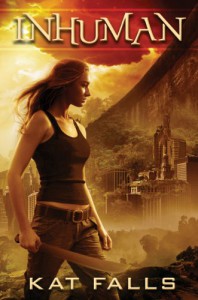

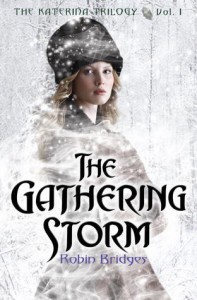
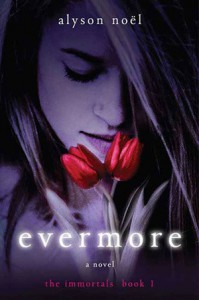
 2
2
